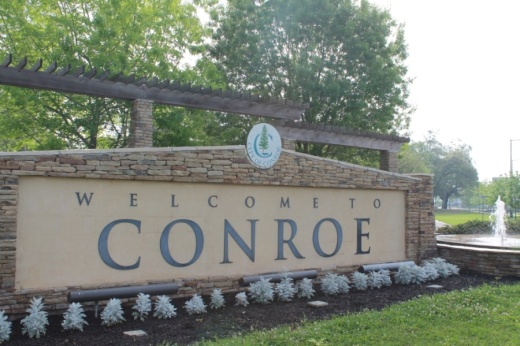The company has not been officially revealed, but former Conroe mayor Webb Melder let slip that it was Niagara Bottling at an April 21 city council workshop meeting. Although Community Impact Newspaper has been unable to independently verify this, officials at the meeting said the company has facilities in Temple, Seguin and Missouri City, which Niagara Bottling also does.
Dubbed Project Hydrate, the proposal involves the construction of two privately owned water wells and a ramp up of groundwater production over time, beginning with 350,000 gallons a day then increasing to 650,000 gallons a day, with the possibility of eventually reaching 1.95 million gallons a day, officials said. City Attorney Marcus Winberry said the initial phase is estimated to run until May 30, 2022, followed by a one-year ramp-up period.
If the lease is approved, the Conroe Industrial Corp. will convey the groundwater rates associated with the tract of land to the city of Conroe, which will then lease the water to the company, officials said.
The company would pay Conroe for the water under the city’s existing water rate. A provision of the lease agreement also states the company can directly hook up to the city’s water supply if needed—and pay the regular rates—until it transitions entirely to groundwater.
On April 22, Conroe City Council voted to defer approving the lease to allow council members extra time to obtain more information. Council members said there were many unanswered questions about the project and its potential impacts.
For example, Council Member Duke Coon said he was concerned that INTERA was chosen by the company as its consulting firm; INTERA was the same company involved with the San J acinto River Authority’s Groundwater Reduction Plan, a management plan that Conroe is currently fighting to get out of via a lawsuit with the SJRA. Coon said he wants to rescind the land selling, which was approved by the CIDC.
“I think this is wrong for Conroe,” he said. “I hope this will be brought back immediately to council and killed right in its tracks.”
Mayor Jody Czajkoski did not provide comments on the proposed project—which is anticipated to bring 90 jobs and increase the city’s tax base—except to note that the council had apparently shifted its opinion on the project.
“We’ve got an infinite water resources. We thought we were looking for good water customers; apparently the winds have changed,” he said. “Welcome to politics.”
Groundwater concerns
Project Hydrate comes on the heels of recent groundwater regulatory decisions involving the Lone Star Groundwater Conservation District—the entity that regulates groundwater in Montgomery County—and Groundwater Management Area 14, which includes LSGCD and four other groundwater conservation districts.
On April 9, GMA 14 voted on a proposed desired future condition, or DFC, for the Gulf Coast Regional Aquifer System. The DFC is a long-term goal for the aquifer that establishes how much districts within GMA 14 can pump.
The proposed DFC statement restricts districts within GMA 14 to no less than 70% of the median available drawdown remaining in the aquifer system in 2080 and no more than 1 additional foot of average subsidence between 2009 and 2080. Subsidence refers to the gradual sinking of the earth that can be a result of excessive groundwater withdrawals. A final DFC statement is yet to be adopted.
It is not clear how the bottling business will affect the proposed GMA 14 DFC statement and regulations or the LSGCD’s management plan that centers around providing a fair share to every landowner, Melder said at the April 21 workshop meeting. Melder asked council to consider these issues at the April 21 meeting.
“Before you proceed, ask yourself, do you really understand what all of this means?” he asked.
A hydrology study conducted by INTERA found that Conroe’s wells that are closest to the two proposed wells in Conroe Park North would experience about 7 feet of drawdown over 30 days under the 1.95 million gallons per day usage—which is a rate officials associated with the project said they hope not to hit. The rate of drawdown slows over time, reaching about a 30-foot average drawdown after 30 years, according to the study.
The hydrological study did not factor in anticipated growth within the city, nor did it consider affects on subsidence, officials said.
Council member Marsha Porter said she initially thought the project was “a pretty good deal,” but she was worried about making a decision when she did not know the long-term consequences.
“We don’t know exactly what the decision will be on the DFC that we are allowed to pump,” she said. “That’s what makes me most nervous about this deal. I don’t want to make a wrong decision that would affect the future of the citizens of Conroe for a long time.”
Council members expressed gratitude at the item being deferred April 22.





